|
by Luv Mehta When Netflix came to India, it took a while for me to get on the bandwagon, but I’m glad I did. I like having contributed money to stuff I like, and I like having shows and movies a mere click away (and that has been your requisite promotion, Netflix™, I’ll send you my email address, and you can send me all of the money). Netflix has a lot of original shows too, though, and one of them caught my eye. BoJack Horseman is, at first glance, a show seemingly filled with every stereotype common to American animation (black comedy, filthy humour, satire of Hollywood and American obsession with any form of excess), which has nevertheless captured the imagination of many a critic. So I checked it out. And, well, I found another new favourite TV show. Let me tell you why, in a few spoiler-free paragraphs. What makes BoJack Horseman stand out from the competition? Well, for starters, it’s a black comedy (and a pretty well-written one), and strangely, a drama too. We’ll get to the latter in a moment. Let’s talk about the fun setting first - a world filled with anthropomorphized animals living alongside human beings. We’ve seen something of the sort in Looney Toons, but here, it’s played completely straight, letting all the comedic gold that can be mined out of situations in this environment arise naturally. Plus, because the show is set in Hollywood, it has more than enough material to mine for jokes and gags - and brutal satire, but we’ll get to that in a moment as well. The voice cast comprises of so many famous actors (Will Arnett from Arrested Development, Alison Brie from Community, and most famously, Aaron Paul as that one contestant from The Price Is Right) that it’s a wonder all of them acclimate themselves so well to their roles that you’d have a hard time remembering the other iconic characters they’ve played. This is some career-highlight work being done right now, especially from Will Arnett - but we’ll get to that in a moment too. And of course, there are many, many guest stars, ranging from Paul McCartney to Stanley Tucci to Olivia Wilde. So far, however, we’ve covered a lot of positives for the show without arriving at any particular thing that makes it unique. What sets BoJack Horseman apart from something like a Seinfeld, a Simpsons or a South Park? Well, there’s a tendency to maintain a status quo, which can be found in all sitcoms, including the ones above. Characters don’t change with time, lessons learned are lessons conveniently forgotten in time for the next episode, and no one is allowed to succeed or fail by an overwhelming amount. In addition, no one is allowed to get any just desserts for any mistakes they made, because the magic hand of the Creator will always fix things in time for the 22-minute mark to roll the credits. So George will never have a long-term girlfriend, Bart will never get better at studies, and Kenny will always come back to life - but Homer doesn’t have to face any action for being a consistently bad father, and Cartman doesn’t have to care about any lasting consequences for his constant evil deeds. Here’s where BoJack Horseman does something different. Character interactions are the heart of the show, and they’re allowed to change and shape the characters themselves, and as time goes on, this leads to substantial changes in the setting itself. There’s no status quo to comfortably settle into, because that would mean betraying the choices and consequences these characters face. This means, of course, that even better recurring gags can be crafted out of one-off storylines further influencing situations down the road. Netflix releases a whole season in one go, so there are even further rewards to bingewatch the show in a day’s time. However, this also leads to an important byproduct - accountability. Yes, BoJack Horseman’s a comedy, but it’s also a drama - and a well-scripted drama, too. It’s often been said by the best comedians, from Charlie Chaplin to Robin Williams, that pathos derived from comedic situations can affect the audience much more than if derived from drama. The reasoning is valid, too - you go into a drama expecting to go through a gamut of emotions, but you go into a comedy expecting fun and laughter. Which means it can butter you up before frying at 220 degrees, so to say. And that’s where much of the drama is derived from. Every character is likeable and complex and flawed, and while they’re allowed to succeed (unlike shows that stick their characters in an eternal quagmire of failure to maintain the status quo), they’re never let off the hook for the times they mess up. A lot of what the characters do have far-reaching consequences, affecting other characters regularly, and they’re always held accountable for their actions in the long term. This also plays into the satirical nature of the show. Yes, we do have a lot of gags poking fun at the vacuous obsession with superficiality in Hollywood, but we also have some deeply sharp satire cutting into its dark underbelly, exploring uncomfortable issues with unrelenting realism. It’s a fun world filled with talking horses and cats and dogs and hippopotamuses, but it’s also a twisted, vicious and profoundly shitty world like ours, filled with powerful people who ruin lives for breakfast. And the effect this fucked-up world has on the characters is also played uncompromisingly straight. And thus, we finally come to BoJack Horseman. BoJack is a washed-up celebrity clinging to his past glories, wanting people to love him but unable to make long-term commitments of the same nature, well-meaning and funny and smart but instinctively damaging to all around him, frustrated and lonely and bitter and full of self-loathing. He desires recognition, but can’t take the resulting scrutiny. He’s egoistic and casually insults other people, but he can’t take the same coming from them. And the sad things is, he’s all too aware of his flaws, and yet, despite his numerous attempts, he can’t change. There’s something fundamentally broken in him, and for all the good and bad that happens to him, he can’t do anything about it. And that’s the thing that sets the show apart from the competition. For all the jokes and gags and satire, BoJack Horseman is a nuanced, sophisticated, insightful and responsible look at the damaging nature of depression, treating it with unflinching realism. And in that aspect, this filthy, bawdy, quirky animated series somehow even trumps shows like True Detective and Mad Men. None of it would have been possible, of course, without Will Arnett playing BoJack, and that guy is killing it. Bringing just the right amount of smugness, snark and pathos, this just might be his best work ever. There’s an ongoing track of conversation in one of the episodes about flawed characters, and how audiences respond well to them because they see themselves in those larger-than-life people, which pretty much acts as the best possible advertisement for BoJack Horseman itself. There’s something broken in all of us, and when we see someone embodying all the things we knew existed in ourselves but could never properly put our finger on, it helps us discover ourselves in the process. And all of the above sounds incredibly pretentious, I know, so I’ll leave the judging up to you. The third season arrives July 22, and the critics, bound by a review embargo, are still letting it slip that it’s fantastic. So for those of you looking for a new show to obsess over, why not choose this one? I promise, you won’t regret it.
Follow us on Facebook and Instagram to be notified whenever we release new articles.
Do you use an RSS reader? Even better!
0 Comments
Leave a Reply. |
Categories
All
Archives
December 2022
|
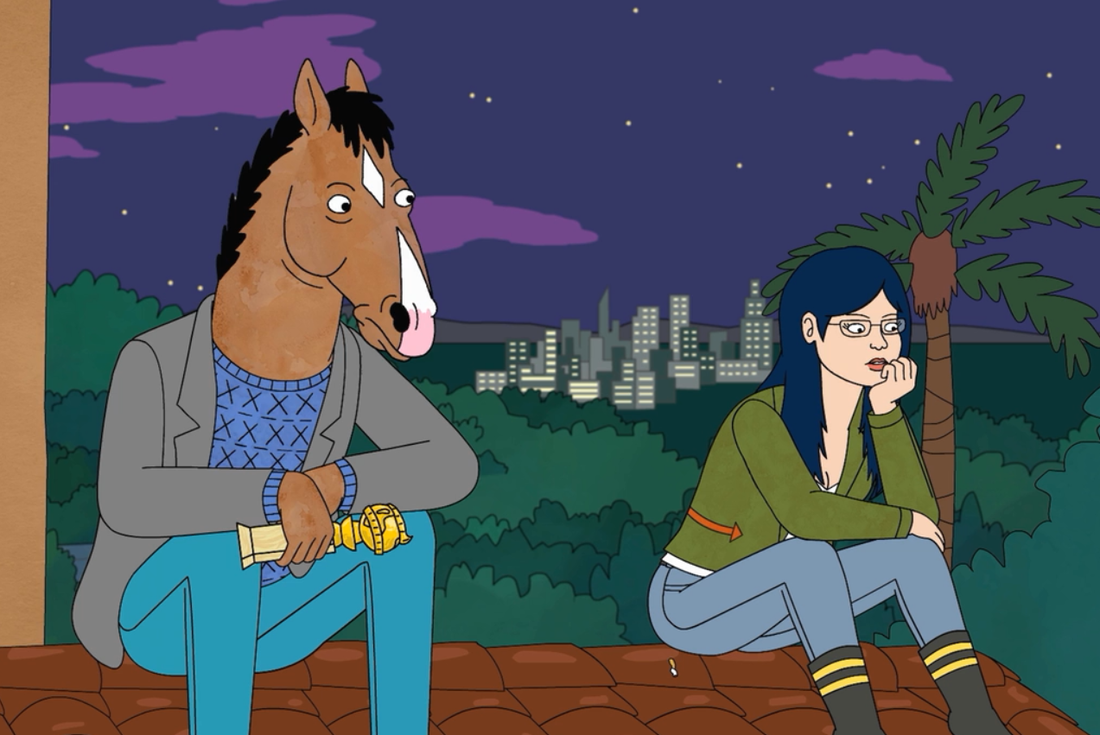
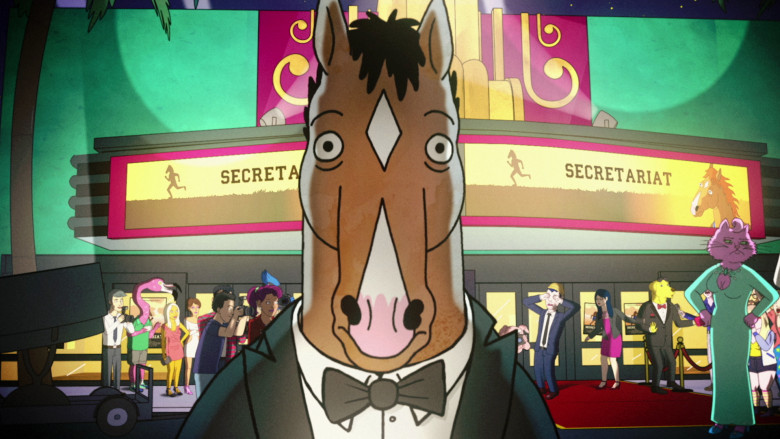
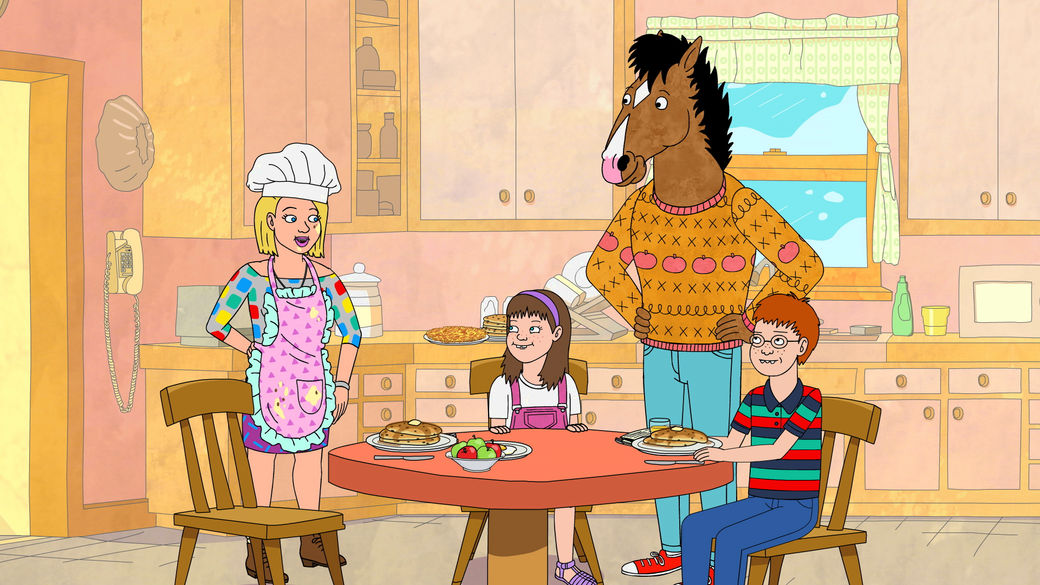
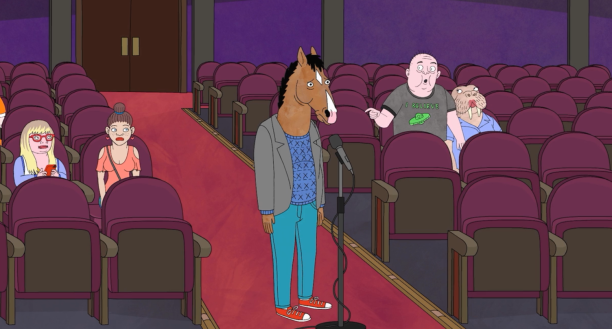
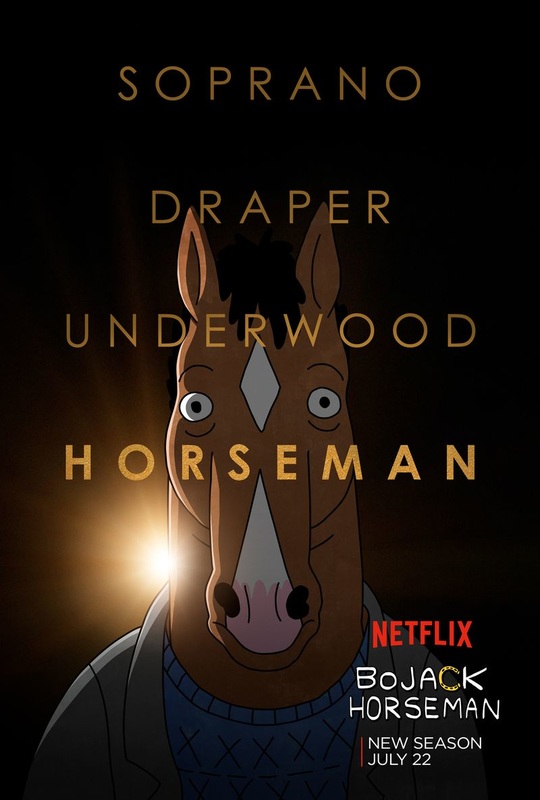
 RSS Feed
RSS Feed
